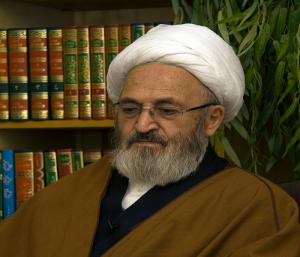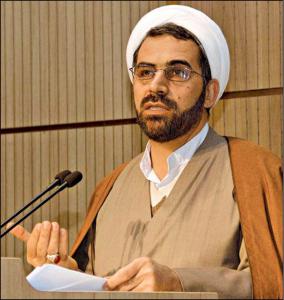Various Articles
What Are The Causes of Advancement of The Muslims In The Past Ages?
- Published at
-
- Author:
- haykh Nasir Makarim Shirazi & Ayatullah Ja'far Subhani

Question: What were the causes of the advancement of the Muslims in the past ages? And what are the reasons for their backwardness and downfall? What is the reason that once upon a time the Muslims were ruling over many cultured nations and were the leaders of the caravan of civilization. Now they have become dependent on developed nations.
The Reasons behind the Burgeoning of the Shi‘ah during the Period of ‘Abbasid Caliphate
- Published at
-
- Author:
- Ghulam-Husayn Muharrami
 During the Umayyad period, the Hashimis—including both the ‘Abbasids and the ‘Alawis - were united, and from the time of Hashim when the ‘Abbasid campaigns started and coordination with the uprising of Zayd and his son, Yahya, they commenced their tasks based on Shi‘ism. As Abu’l-Faraj al-Isfahani says: When Walid ibn Yazid, the Umayyad caliph, was killed, and there was disagreement among the Marwanis, the Hashimite propagators and campaigners went to the districts (rural areas) and the first thing they expressed was the superiority of ‘Ali ibn Abi Talib and his progeny as well as their being oppressed.
During the Umayyad period, the Hashimis—including both the ‘Abbasids and the ‘Alawis - were united, and from the time of Hashim when the ‘Abbasid campaigns started and coordination with the uprising of Zayd and his son, Yahya, they commenced their tasks based on Shi‘ism. As Abu’l-Faraj al-Isfahani says: When Walid ibn Yazid, the Umayyad caliph, was killed, and there was disagreement among the Marwanis, the Hashimite propagators and campaigners went to the districts (rural areas) and the first thing they expressed was the superiority of ‘Ali ibn Abi Talib and his progeny as well as their being oppressed.
Kufa: Stage of Shi'i Activities
- Published at
-
- Author:
- Prof. Dr. Sayyid Husayn Muhammad Ja'fari
 From the time 'Ali moved to Kufa in 36/656, or even earlier, the city became the main centre of Shi'i movements, aspirations, hopes, and sometimes concerted efforts. It was in and around Kufa that so many of the stormy events which make up the early history of Shi'i Islam took place: events such as the mobilization of forces by 'Ali for the battles of Al-Jamal and Siffin the election and abdication of Hasan, the uprising of Hujr b. 'Adi al-Kindi, the massacre of Husayn and his companions, the movement of the Tawwabun, and the revolt of Mukhtar. Yet Kufa also proved to be a source of setbacks, disappointments, frustrations, and even treachery and failure in the Shi'i desire to see the house of 'Ali in command of the affairs of the Muslim community. This chapter, therefore, endeavours to examine in brief the nature and composition of the city of Kufa and the characteristic tendencies of its people.
From the time 'Ali moved to Kufa in 36/656, or even earlier, the city became the main centre of Shi'i movements, aspirations, hopes, and sometimes concerted efforts. It was in and around Kufa that so many of the stormy events which make up the early history of Shi'i Islam took place: events such as the mobilization of forces by 'Ali for the battles of Al-Jamal and Siffin the election and abdication of Hasan, the uprising of Hujr b. 'Adi al-Kindi, the massacre of Husayn and his companions, the movement of the Tawwabun, and the revolt of Mukhtar. Yet Kufa also proved to be a source of setbacks, disappointments, frustrations, and even treachery and failure in the Shi'i desire to see the house of 'Ali in command of the affairs of the Muslim community. This chapter, therefore, endeavours to examine in brief the nature and composition of the city of Kufa and the characteristic tendencies of its people.
Arnold Toynbee’s Theory of Civilizations
- Published at
-
- Source:
- www.mrmorellichs.weebly.com
 Genesis
Toynbee argues that "self-determining" civilizations are born (out of more primitive societies), not due to racial or environmental factors, but as a response to challenges, such as hard country, new ground, blows and pressures from other civilizations, and penalizations. He argues that for civilizations to be born, the challenge must be a golden mean; that excessive challenge will crush the civilization, and too little challenge will cause it to stagnate.
Genesis
Toynbee argues that "self-determining" civilizations are born (out of more primitive societies), not due to racial or environmental factors, but as a response to challenges, such as hard country, new ground, blows and pressures from other civilizations, and penalizations. He argues that for civilizations to be born, the challenge must be a golden mean; that excessive challenge will crush the civilization, and too little challenge will cause it to stagnate.
Madrasa Education in Pakistan: In the Context of Government Policy
- Published at
-
- Author:
- Sanchita Bhattacharya
- Source:
- www.globaleducationmagazine.com
 The word ‘madrasa’ do generate a lot of curiosity and negative propaganda among scholars of international community. In most of the instances it is considered to be an institution of preaching hatred and violence. Moreover, the madrasas existing in Pakistan are considered to be factories producing religious extremists. But, strangely enough, the basic reason behind the emergence of madrasa- to seek knowledge as enshrined in the principals of Islam are not known. Therefore, fundamental objective or purpose of the study is to understand the changing pattern of madrasa and the role of government in Pakistan to ‘modernise’ it.
The word ‘madrasa’ do generate a lot of curiosity and negative propaganda among scholars of international community. In most of the instances it is considered to be an institution of preaching hatred and violence. Moreover, the madrasas existing in Pakistan are considered to be factories producing religious extremists. But, strangely enough, the basic reason behind the emergence of madrasa- to seek knowledge as enshrined in the principals of Islam are not known. Therefore, fundamental objective or purpose of the study is to understand the changing pattern of madrasa and the role of government in Pakistan to ‘modernise’ it.
The Battle of Uhud (624 A.D.)
- Published at
-
- Author:
- Yasin T. al- Jibouri
 Ghazwat al-Sawaiq was only a prelude to the big battle that was to follow. The chagrin and fury of Abu Sufyan and his Quraishite supporters at their defeat at Badr knew no bounds. Their whole energy was aroused and they commenced preparations for another attack on the Muslims. Abu Sufyan rallied behind him the coastal tribes of Banu Kinanah and Banu Tihamah.
Ghazwat al-Sawaiq was only a prelude to the big battle that was to follow. The chagrin and fury of Abu Sufyan and his Quraishite supporters at their defeat at Badr knew no bounds. Their whole energy was aroused and they commenced preparations for another attack on the Muslims. Abu Sufyan rallied behind him the coastal tribes of Banu Kinanah and Banu Tihamah.
Historical & Religious perspectives in Dealing with AIDS
- Published at
-
- Author:
- Faisal ABDUL LATIF ALNASIR
- Source:
- Arabian Gulf University
 Summary
Acquired Immunodeficiency Syndrome is a serious medical and social problem that could be labeled as the plague of the century. But in many parts of the world still the subject of AIDS is considered as a taboo and HIV-positive people are mistreated. Such factors contribute to the fact that the number of AIDS cases may be underreported.
Summary
Acquired Immunodeficiency Syndrome is a serious medical and social problem that could be labeled as the plague of the century. But in many parts of the world still the subject of AIDS is considered as a taboo and HIV-positive people are mistreated. Such factors contribute to the fact that the number of AIDS cases may be underreported.
Do the Shi‘ah think that Jibra’il (Archangel Gabriel) has committed treachery?
- Published at
-
- Author:
- Sayyid Rida' Husayni Nasab
 Reply: Before proving the groundlessness of this loathsome accusation made against the Shi‘ah by some ignorant or spiteful people, it is appropriate to trace its origin.
Reply: Before proving the groundlessness of this loathsome accusation made against the Shi‘ah by some ignorant or spiteful people, it is appropriate to trace its origin.
Contributions of Islamic Scholars to the Scientific Enterprise
- Published at
-
- Author:
- Yasmeen Mahnaz Faruqi
- Source:
- Flinders University, School of Education
 Abstract
This paper presents a discussion regarding the role that Muslim scholars played in the development of scientific thinking in the Middle Ages. It argues that the Muslims were not just the preservers of the ancient and Greek knowledge, but that they contributed original works to the different fields of science. They were inspired by the Islamic view of nature that is, mankind had a duty to ‘study nature in order to discover God and to use nature for the benefit of mankind’. This knowledge was transferred to Western Europe and subsequently played an important role in revitalising a climate of learning and exploration in Europe, leading to the Renaissance in the sixteenth and seventeenth centuries.
Keywords: Muslim scholars, scientific thinking, Islamic view of nature, knowledge transfer, Western science
Abstract
This paper presents a discussion regarding the role that Muslim scholars played in the development of scientific thinking in the Middle Ages. It argues that the Muslims were not just the preservers of the ancient and Greek knowledge, but that they contributed original works to the different fields of science. They were inspired by the Islamic view of nature that is, mankind had a duty to ‘study nature in order to discover God and to use nature for the benefit of mankind’. This knowledge was transferred to Western Europe and subsequently played an important role in revitalising a climate of learning and exploration in Europe, leading to the Renaissance in the sixteenth and seventeenth centuries.
Keywords: Muslim scholars, scientific thinking, Islamic view of nature, knowledge transfer, Western science
Europe and its Muslims: Building a Common Future 1/3 (Japan)
- Published at
-
- Author:
- Tariq Ramadan
- Source:
- www.tariqramadan.com
 Thank you. Thank you once again for your invitation here; for giving us the opportunity to speak about the European reality, and to share views with you in Japan. I think it is really important, not only to come and import some visions about the problems, but also for us Europeans to look at what you are dealing with in Japan and Asia to try to find trends and solutions for our problems. So thank you for this invitation.
Thank you. Thank you once again for your invitation here; for giving us the opportunity to speak about the European reality, and to share views with you in Japan. I think it is really important, not only to come and import some visions about the problems, but also for us Europeans to look at what you are dealing with in Japan and Asia to try to find trends and solutions for our problems. So thank you for this invitation.
Europe and its Muslims: Building a Common Future (Japan) 2/3
- Published at
-
- Author:
- Tariq Ramadan
- Source:
- www.tariqramadan.com
 Multiple Identities and Muslim Responsibilities
Moving into the main part of this lecture, I want to begin by highlighting some of the circumstances that require Muslims to be critical – self-critical – and to come with new answers. This is really essential. First, when you come to a continent, there are two things that you have to acknowledge as parts of the society you are living in.
Multiple Identities and Muslim Responsibilities
Moving into the main part of this lecture, I want to begin by highlighting some of the circumstances that require Muslims to be critical – self-critical – and to come with new answers. This is really essential. First, when you come to a continent, there are two things that you have to acknowledge as parts of the society you are living in.
Europe and its Muslims: Building a Common Future (Japan) 3/3
- Published at
-
- Author:
- Tariq Ramadan
- Source:
- www.tariqramadan.com
 Tackling Fear and Building Trust: Society’s Collective Responsibility
We will now turn to the second part of this speech, which concerns the responsibilities of European countries. What I have previously been talking about would be easier if this was the only part of the process, that is, if the problems only had to be tackled from the Muslim side of things. But in Europe today, we are facing problems.
Tackling Fear and Building Trust: Society’s Collective Responsibility
We will now turn to the second part of this speech, which concerns the responsibilities of European countries. What I have previously been talking about would be easier if this was the only part of the process, that is, if the problems only had to be tackled from the Muslim side of things. But in Europe today, we are facing problems.
Transfer of Caliphate to the Marwanids
- Published at
-
- Author:
- Rasul Ja'fariyan
 Seemingly subsequent to Imam Husayn’s martyrdom, there existed no hurdle facing the Umayya. It was Yazid’s impudence that had one of the Muhadjirun’s descendant, ‘Abd Allah Ibn Zubayr, muster up courage and cause turbulence in Hidjaz. Although one of the instigators of the war of Djamal was he, during Imam Husayn’s several-month presence in Mecca, despite his own mind and due to his political harmony with Imam,...
Seemingly subsequent to Imam Husayn’s martyrdom, there existed no hurdle facing the Umayya. It was Yazid’s impudence that had one of the Muhadjirun’s descendant, ‘Abd Allah Ibn Zubayr, muster up courage and cause turbulence in Hidjaz. Although one of the instigators of the war of Djamal was he, during Imam Husayn’s several-month presence in Mecca, despite his own mind and due to his political harmony with Imam,...
Decline of the Marwanid
- Published at
-
- Author:
- Rasul Ja'fariyan
 Khurasan was the major troubled spot for the Umayyads since it was not only far from the capital but also it had its own problems such as tribal wars between the Arab immigrants, cruelties of the Umayyads prevalent there and relative political and economic independence which had made there an important center among the eastern provinces. The formation of the crucial revolutions out there during the final years of the Umayyads ruling was not something which could be easily overlooked by them. And finally from the very same spot appeared a massive army that overthrew the Umayyads. Now the riot of Harith Ibn Suraydj, one of the important riots, from 166 to 127 (A.H.) is to be discussed.
Khurasan was the major troubled spot for the Umayyads since it was not only far from the capital but also it had its own problems such as tribal wars between the Arab immigrants, cruelties of the Umayyads prevalent there and relative political and economic independence which had made there an important center among the eastern provinces. The formation of the crucial revolutions out there during the final years of the Umayyads ruling was not something which could be easily overlooked by them. And finally from the very same spot appeared a massive army that overthrew the Umayyads. Now the riot of Harith Ibn Suraydj, one of the important riots, from 166 to 127 (A.H.) is to be discussed.
The Establishment of the Art of Islamic Warfare
- Published at
-
- Author:
- Muhammad Dhahir Watr
 The establishment of 'the art of Isla-mic warfare' emerged after the migration of the Holy Prophet (s) to Madina with the implementation of the first Sariya mission. During this period, battles took place continuously and the Muslim army had hardly recovered from one conflict when it was faced with another battle. Wars were also fought in a similar sequence. The foundation that the [continuous] battles and wars of the Prophet (s) formed was like a spring that never stopped gushing in strengthening the structures of military management, which were responsible for designing the strategies of war.
The establishment of 'the art of Isla-mic warfare' emerged after the migration of the Holy Prophet (s) to Madina with the implementation of the first Sariya mission. During this period, battles took place continuously and the Muslim army had hardly recovered from one conflict when it was faced with another battle. Wars were also fought in a similar sequence. The foundation that the [continuous] battles and wars of the Prophet (s) formed was like a spring that never stopped gushing in strengthening the structures of military management, which were responsible for designing the strategies of war.
The Arab Military before Islam
- Published at
-
- Author:
- Muhammad Dhahir Watr
 The methods of war among the Arabs were different from that of all the other races. In their battles they relied on offence and attack and their motivation was limited to: defending their idols, bloodlust, raiding and stealing cattle, and increasing the status and position of their own tribes. Their most important weapon was the sword.
The methods of war among the Arabs were different from that of all the other races. In their battles they relied on offence and attack and their motivation was limited to: defending their idols, bloodlust, raiding and stealing cattle, and increasing the status and position of their own tribes. Their most important weapon was the sword.
The Most Important Islamic Sources and Historians That Speak of the Art of Islamic Warfare
- Published at
-
- Author:
- Muhammad Dhahir Watr
 Despite the fact that the wars of the Prophet (S) were fought over a relatively short period (10 years), his method and style of command and military leadership lasted for a long time; because Muslims and others, within the military and without, have discussed, studied and analyzed this subject from the beginning of the first century A.H. up to this day and have not neglected it.
Despite the fact that the wars of the Prophet (S) were fought over a relatively short period (10 years), his method and style of command and military leadership lasted for a long time; because Muslims and others, within the military and without, have discussed, studied and analyzed this subject from the beginning of the first century A.H. up to this day and have not neglected it.
The Army Staff Headquarters of the Holy Prophet (S.A.W.)
- Published at
-
- Author:
- Muhammad Dhahir Watr
 The [Army] Staff Headquarters was responsible for organizing the affairs pertaining to recruitment of soldiers and encouraging them [to join the army], as well as personal matters [of the individual soldiers] like strengthening the spirit of the combatants etc. The following departments fell under their command:
The [Army] Staff Headquarters was responsible for organizing the affairs pertaining to recruitment of soldiers and encouraging them [to join the army], as well as personal matters [of the individual soldiers] like strengthening the spirit of the combatants etc. The following departments fell under their command:
The Beginning of the ‘Abbasid Campaign and Its Effect upon the Spread of Shi‘ism
- Published at
-
- Author:
- Ghulam-Husayn Muharrami
 The campaign of the ‘Abbasids started in 111 AH. On the one hand, it contributed to the spread of Shi‘ism in the various territories of the Muslim world, and on the other, the acts of strangulation of the Umayyads were lessened. As a result, the Shi‘ah were able to have a relative breathing space.
The campaign of the ‘Abbasids started in 111 AH. On the one hand, it contributed to the spread of Shi‘ism in the various territories of the Muslim world, and on the other, the acts of strangulation of the Umayyads were lessened. As a result, the Shi‘ah were able to have a relative breathing space.
The Spread of Shi‘ism during the Period of Umayyad Caliphate
- Published at
-
- Author:
- Ghulam-Husayn Muharrami
 In spite of severe strangulation and oppression perpetrated against the Shi‘ah during the Umayyad rule, the spread of Shi‘ism continued unabated. The reason behind this was the state of oppression of the family of the Prophet (S) which prompted the people to incline emotionally toward them, causing new individuals to continuously embrace the creed of Shi‘ism.
In spite of severe strangulation and oppression perpetrated against the Shi‘ah during the Umayyad rule, the spread of Shi‘ism continued unabated. The reason behind this was the state of oppression of the family of the Prophet (S) which prompted the people to incline emotionally toward them, causing new individuals to continuously embrace the creed of Shi‘ism.


